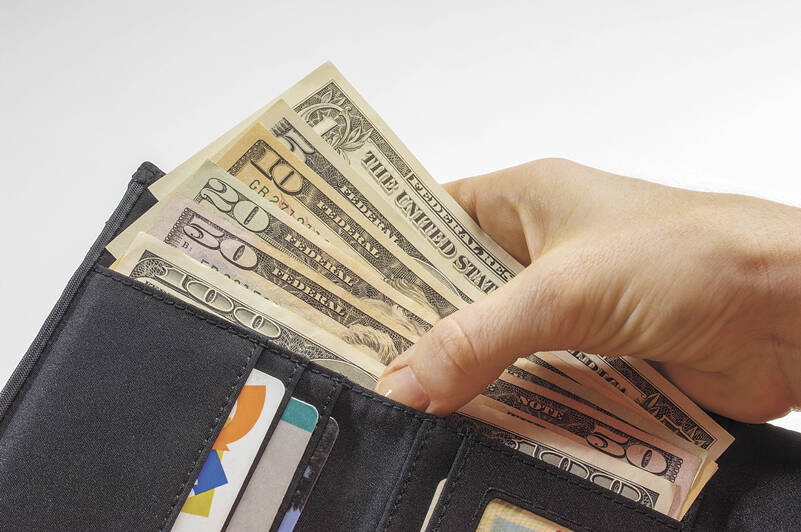By Morf Morford, Tacoma Daily Index
Shop ‘til you drop
Delinquency rates for credit card payments, auto loans, and consumer loans are at their highest levels in a decade, and are projected to get worse. Much worse.
Many of us, from businesses to individuals to national budgets have had more than the usual amount of disposable assets. Or at least we thought we did.
For the past several years (mostly thanks to the pandemic) stimulus checks, unemployment payments, and pauses on student loans and rent made big spenders out of most of us. But those programs have ended, family savings are tapped out, and inflation has made everything from shelter to food more costly.
From houses to toilet paper, many of us found ourselves buying more, usually for good reason, than usual. For the past several years for example, home buyers bought homes with the primary assumption that home prices would only get higher later. And they usually did.
Buy now, pay later
Buying “now” was an economic strategy – whether we could “pay” later was an entirely different question.
As of 2023, Americans collectively owe more than $1 trillion in credit card debt, with the delinquency rate at 3.8%. Besides that, in any given month, an average of 5.4% of consumer loans and 3.6% of auto loans are late.
With the average credit card interest rate at roughly 21%, payments can really stack up as many households face the paralyzing decision of whether to pay their credit card bills, their rent, or buy groceries.
One recent survey from LendingTree found 21% of respondents saying they used buy-now-pay-later (BNPL) loans just to buy groceries.
The holiday season is rapidly approaching. This is the time of the year when people almost instinctively splurge by spending money they don’t have. And most of us keep spending. Or at least we have. For the past decade, consumer spending increased each holiday season, and in 2022, it grew 5.3% to roughly $940 billion, according to the National Retail Federation.
Credit cards
These deficit spending problems are also hitting retailers that offer their own in-house credit cards. Macy’s CFO, Adrian Mitchell, recently told investors that while the company had already expected delinquencies to climb in the second quarter, the rate of increase was faster, and more dramatic, than originally thought.
“Other revenue,” which includes credit card-related revenue, dropped $84 million in one year.
Visa and Mastercard just announced increased charge fees for certain purchases when customers use their credit cards, which could result in merchants – and each one of us – paying an additional $502 million annually in fees.
Interest rates?
Interest rates have increased, and are expected to continue increasing.
The purpose of raising interest is to lower inflation, which, for many individuals and businesses, increases the risk of entirely preventable, unforeseen, and often permanent, economic collateral damage. And these impacts, as is often the case, are not evenly distributed.
To no one’s surprise, we can expect to see a corresponding rise in delinquent loan payments and weak consumer confidence – especially among those already financially vulnerable.
And, as we have seen the past several years, a dramatic growth in those who, like losers in the game “musical chairs”, find themselves excluded from the housing market. And stable employment. And personal safety. And the usual “safety nets” of a civil society.
The best investment. Ever.
The best investment strategy, for businesses and individuals – and governments – is the opposite of buy-now-pay-later.
The best, and most profitable strategy for all of us, businesses, individuals and governments, is to save now, and spend later. And by “later” I mean as “late” as possible; years, decades, even generations from now would be the ultimate best investment.
Schools, highways and general infrastructure may not have the glaze and glamor of the latest fashion items, but future generations will thank us all for legacy and systems we set in place for them. Or they will marvel at our short-sightedness and the mess we left behind.
Spending money we don’t have, in the hope, or faith, that someone, some time, will pay our tab is no way to run a business or household budget. And certainly no way to run a government.
A trillion dollars is a lot of debt. It took many years and many decisions to get us there. Most of those decisions and choices were not intentional or deliberate, but the choices we make to get out of this debt must be intentional and deliberate.
If there is one guiding principle of enduring wealthy families, it is the power of money over time.
Money spent is money gone. Money invested is money at work. And the longer it works, the better off we will be.
Whether we are in debt or if we prosper, we will do it together.






